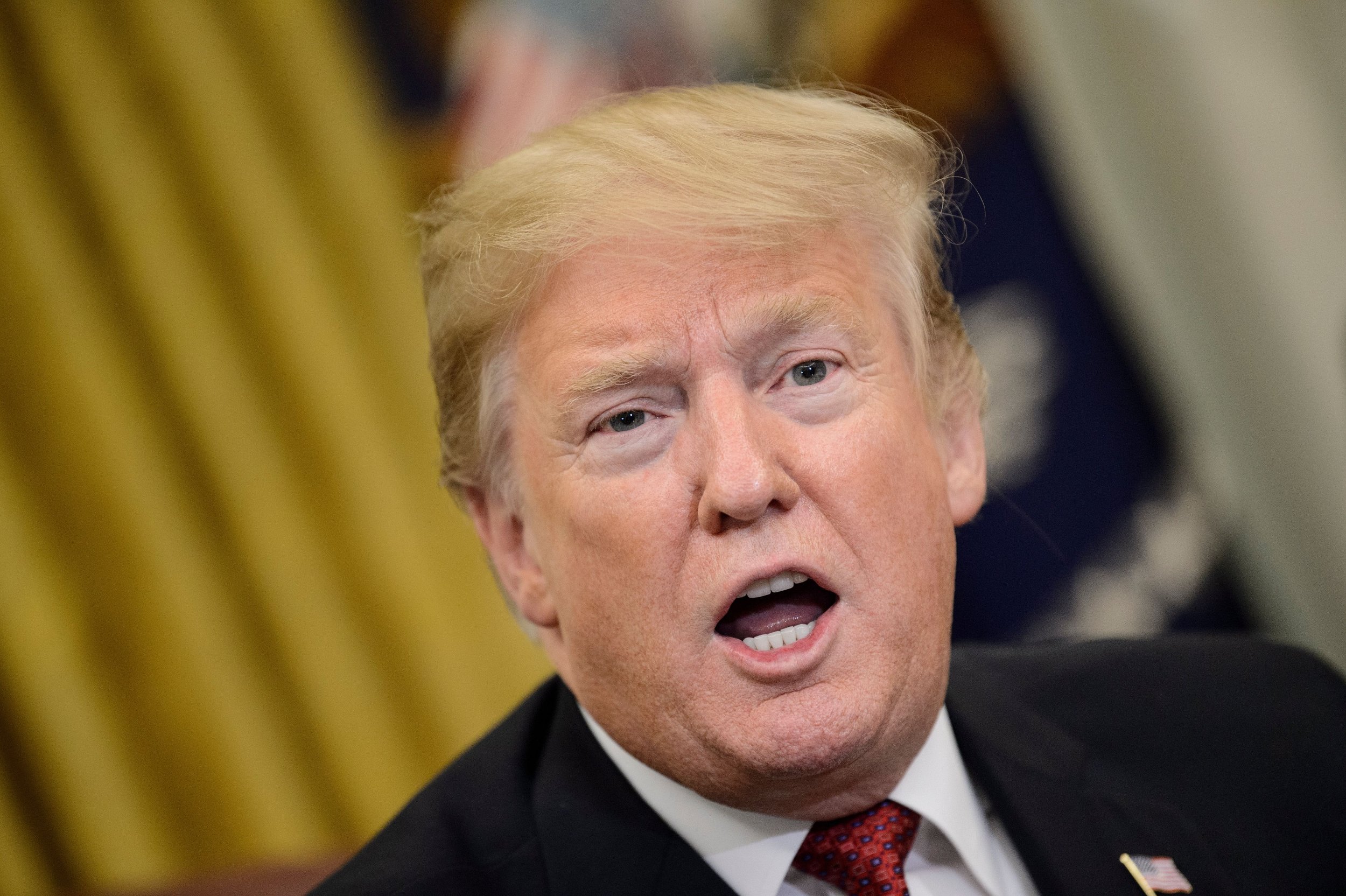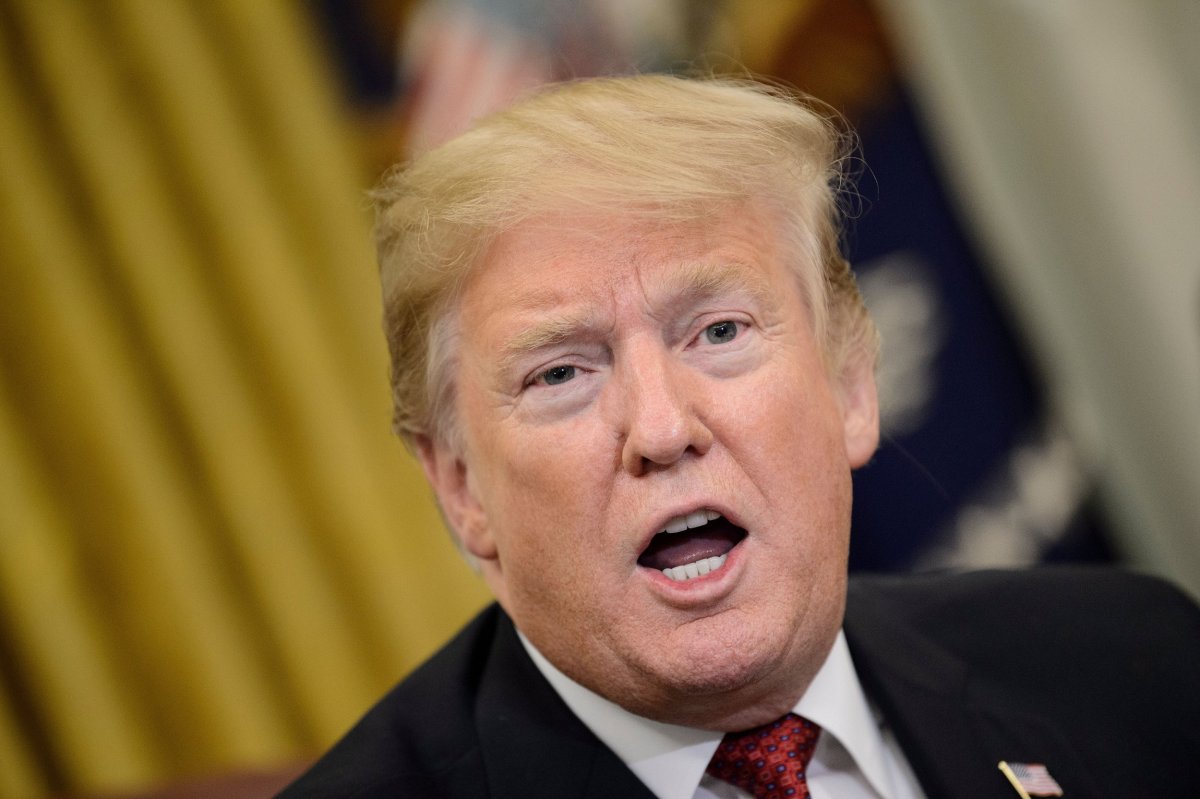
A White House report about the nation's drug problem did not mention President Donald Trump's border wall as a method of stopping the flow of illicit substances into the country.
The National Drug Control Strategy, released Thursday, offered methods for preventing drug abuse. The report, which also discussed means of limiting access to illicit substances, did not include the words wall or barrier in the same context as the president.
Its recommendations for prevention included implementing national media campaign, expanding prescription drug monitoring programs and bolstering take-backs of unused prescription medications.
"By reducing the number of individuals who use illicit drugs through prevention and treatment, we can diminish the market forces pulling illicit drugs across our borders and into our communities. Simultaneously, we must drastically reduce the availability of these drugs in the United States," the study states.
It says that defeating traffickers and their supply chains, stopping the flow of drugs across physical borders and dismantling drug production infrastructure would be helpful for reducing access to drugs. While it advocated for interdicting illicit substances before they entered the U.S., the report noted that drugs could enter the country through a range of methods, including mail.
"Almost all of the illicit drugs causing American deaths are produced outside the United States and trafficked across the Nation's borders and, increasingly, through the international mail and express consignment carriers," the study says. "We must complement our efforts against internet drug sales with a sustained effort to disrupt the flow of illicit drugs shipped through the international mail and express consignment environments."
STAT, the health-news website, said the "blueprint includes little new policy."
The Office of National Drug Control Policy did not comment prior to publication.

President Trump has claimed that a border wall would stop drugs from entering the country, but existing evidence says otherwise.
Fact-checkers have noted the DEA wrote in October 2018 that most heroin comes into the country at "legal ports of entry, followed by tractor-trailers, where the heroin is co-mingled with legal goods. Body carriers represent a smaller percentage of the heroin movement and they typically smuggle amounts ranging from three to six pounds taped to their torso, or in shoes and backpacks."
Associates of drug kingpin Joaquín "El Chapo" Guzmán, who is on trial in federal court in Brooklyn, New York, testified that smugglers brought drugs into the U.S. at legal ports of entry for years, according to The Washington Post.
On Thursday, Customs and Border Protection announced that agents had confiscated 254 pounds of fentanyl at the Nogales, Arizona, point of entry last weekend. The bust was the largest seizure of fentanyl, a synthetic opioid that can be 100 times more powerful than morphine, in U.S. history.
On Friday, a day after the White House drug report was released, The New York Times published a story in which Trump claimed that his border wall would prevent drugs from entering the country.
"You look at the heroin and a lot of the other drugs, they come from—90 percent, more than 90 percent—from right across the southern border. And unlike what the Democrats say, they don't, you don't bring trucks of drugs through the checkpoints. You bring trucks of drugs by making a right 20 miles, and a left into the country," he said while speaking with The New York Times.
The paper noted that this claim was false, writing that while data show most heroin enters the U.S. at the southern border, the vast majority of heroin seized by law enforcement is confiscated at ports of entry.
Uncommon Knowledge
Newsweek is committed to challenging conventional wisdom and finding connections in the search for common ground.
Newsweek is committed to challenging conventional wisdom and finding connections in the search for common ground.
About the writer
Daniel Moritz-Rabson is a breaking news reporter for Newsweek based in New York. Before joining Newsweek Daniel interned at PBS NewsHour ... Read more
To read how Newsweek uses AI as a newsroom tool, Click here.








